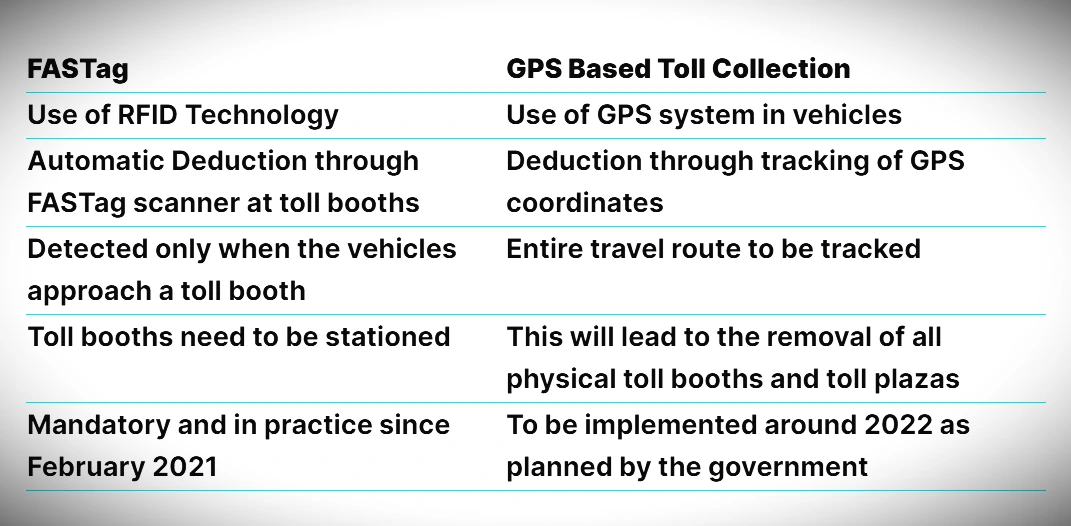Context:
The National Highways Authority of India (NHAI) will be putting in place GPS based toll collection on various routes across India with an aim to cut toll booth congestion.
GPS Tolling Set to Replace FASTag
- The Global Positioning System (GPS) tolling will replace the current FASTag system, which uses Radio Frequency Identification (RFID) technology.
- The system will be rolled out in phases, starting with voluntary adoption.
- Initial concerns over privacy and regulatory framework are being addressed.

About GPS Based Toll Collection System
- The new system charges based on distance traveled, potentially lowering costs for shorter trips.
- Vehicles need GPS/RFID devices and linked bank accounts.
- Takes into account vehicle size/weight for fairer charges: smaller/lighter vehicles pay less.
- It is expected to impact commercial vehicles first, as they contribute to 80% of toll revenue.
How Does the GPS-toll Collection System Work?
- GPS devices are installed in vehicles and constantly relay location data to the system. This offers highly accurate tracking but requires installation and ongoing maintenance costs.
- Automatic Number Plate Recognition (ANPR) cameras capture license plate images and use optical character recognition (OCR) to identify vehicles.
- They offer a cheaper alternative to GPS devices but might face challenges with unclear plates or bad weather conditions.
Benefits of GPS Based Toll Collection
- More equitable: charges based on actual usage, not fixed distance.
- Faster and more efficient: no need to stop at toll plazas.
- Rewards efficient vehicles with lower tolls.
- Reduces wear and tear on roads by charging heavier vehicles more.
- GPS-based toll systems have the potential to be a more efficient and equitable alternative to the current FASTag system.
Challenges With GPS Based Toll Collection
- Privacy concerns due to GPS tracking.
- Requires technical infrastructure upgrades on highways.
- A regulatory framework for data privacy needs to be established.
- However, addressing privacy concerns and establishing a proper regulatory framework is crucial before nationwide implementation.
Also Refer: NHAI’s One Vehicle One FASTag Initiative
News Source: Times of India
![]() 17 Jan 2024
17 Jan 2024

